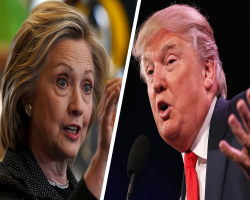In this episode, We have the origin story about the hysteria in Ohio over Trans women playing sports then we talk about the unconsitutional 10 commandments law in recently enacted in Lousiana.
Tag: equality

A recent post-election poll showed that white evangelical Christians are way outside the views of a majority of Americans on a lot of issues. For people interested in keeping the church and state separate, it really isn’t a surprise. How far white evangelicals are outside the majority points to one tough obstacle seculars face – white evangelicals confuse the loss of cultural dominance with oppression. Demanding a level playing field doesn’t take away from people who already have the privilege of sitting at the table.

Republican Presidential candidate Donald Trump, even using causal values, is a terrible person. He has been accused of groping women, admitted to being a pervert, has been married several times, and has some nasty views about women and minorities. Why then is he still getting support from the paladins of virtue – the evangelical Christian community? It really isn’t that hard to see why.
I’m not going to detail on how terrible a human being Trump is, you can search the Internet for details on those points but he has been accused of groping women without consent, admitted to being a pervert by walking into a beauty pageant dressing room without permission, he has been married at three times having started two of those relationships while still married to another wife, and has expressed some vulgar views of women and minorities during campaign stops and on twitter. Yet some evangelicals and their leaders still support Trump.

A committee of the Southern Baptist Convention has published a pamphlet teaching members how to subvert civil laws against discrimination. The main idea is to pretend all church employees are ministers so they can use the ministerial exemption.
Friendly Atheist has the info on the pamphlet:

Today is Religious Freedom Day and President Obama issued a Proclamation to honor the day. The text included atheists as part of the religious diversity and cultural fabric of the United States. He also mentioned the important thing isn’t someone’s faith but that we all should support freedom, equality, justice, and separation of church and state.
Religious Freedom Day marks the day in 1786 when the first religious freedom law – Statute for Religious Freedom – was passed in Virginia.